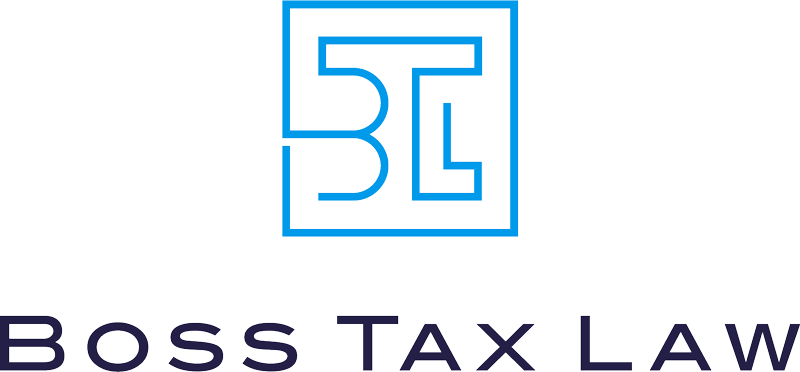You have exactly 30 days from receiving an IRS final notice of intent to levy or federal tax lien notice to protect your business assets. Miss this deadline, and you could face frozen accounts and seized property.
If you’re a business owner facing significant tax debt—$100,000 or more—and you’ve just received that final notice from the IRS, this guide could save your business. As a tax attorney and former IRS agent, I’ve helped countless business owners navigate Collection Due Process (CDP) hearings to protect their assets and negotiate favorable outcomes.
What Is a Collection Due Process Hearing?
A Collection Due Process hearing is your constitutional right to appeal IRS collection actions before they seize your assets. It’s a formal appeal to the IRS Office of Appeals—a separate, independent division from the collection unit that’s been pursuing you.
Think of it as having your day in court, but through an administrative process rather than judicial proceedings. Most importantly, requesting a CDP hearing within the critical 30-day window immediately triggers powerful protections for your business.
Three Immediate Benefits When You Request a CDP Hearing
1. Collection Activity Stops
The moment you file your CDP hearing request, the IRS cannot (absent special circumstances):
- Levy your business bank accounts
- Seize your assets
- Take any enforcement action
This breathing room alone provides invaluable temporary relief while you prepare your case.
2. Fresh Review by Settlement Officer
Your case gets assigned to a settlement officer who hasn’t been involved before. This fresh perspective is crucial because settlement officers have authority to make deals that regular revenue officers cannot.
3. Access to Collection Alternatives
This is where experienced representation makes the biggest difference. During your CDP hearing, you can propose several alternatives to immediate collection.
Powerful Collection Alternatives Available Through CDP Hearings
Offer in Compromise
Settle your tax debt for pennies on the dollar. However, the IRS rejects most offers because they’re improperly prepared. Success requires extensive financial analysis, proper documentation, and formulaic preparation that can span hundreds of pages.
Installment Agreements
Not just simple payment plans, but structured agreements that work with your cash flow:
- Partial Pay Installment Agreements: Pay less than the full amount over time
- Streamlined Agreements: Quick approval for full payment plans that stop further collection efforts
Currently Not Collectible Status
If collections would create economic hardship, the IRS may back off. The statute of limitations continues running, giving your business time to recover.
Penalty Abatement
Eliminate penalties that often represent 25-50% of your total debt. I’ve saved clients hundreds of thousands in penalties alone through CDP hearings.
Strategic Advantages Beyond Stopping Collections
CDP hearings aren’t just about halting collections—they’re about leverage and comprehensive tax strategy:
- Challenge underlying tax assessments if you haven’t had prior opportunity
- Raise statute of limitations defenses (IRS generally has 10 years to collect)
- Coordinate bankruptcy strategies and business restructuring
- Address state tax issues as part of comprehensive planning
- Petition Tax Court if you disagree with the settlement officer’s determination
The CDP Hearing Process Timeline
Step 1: Request Acknowledged (30-60 days) You’ll receive a letter assigning your settlement officer.
Step 2: Financial Disclosure Provide complete business and personal financial information:
- Bank statements
- P&L statements
- Balance sheets
- Asset and liability documentation
Step 3: Settlement Conference Present your case via telephone or in-person meeting. This requires careful preparation and strategic presentation.
Step 4: Resolution (6-12 months typical) The process length varies based on case complexity, but remember—the IRS cannot pursue collection during this time.
Step 5: Tax Court Appeal Option If unsatisfied with the determination, you have 30 days to petition Tax Court for judicial review.
Common Mistakes Business Owners Make Going Alone
- Missing critical deadlines
- Failing to properly document financial situations
- Proposing unrealistic collection alternatives
- Making damaging admissions to settlement officers
Why Professional Representation Matters
As a tax controversy attorney and former IRS agent, I understand how settlement officers think and what proposals they’ll find most compelling. Professional representation ensures:
- Proper case presentation and documentation
- Strategic positioning for optimal outcomes
- Protection from additional exposure
- Maximized savings and asset protection
Take Action Now: Your 30-Day Deadline
That 30-day deadline doesn’t pause for weekends, holidays, or business emergencies. If you’re facing significant business tax debt exceeding $100,000 and you’re serious about protecting your assets through the CDP process, don’t let this critical deadline pass.
Mark your calendar now and request your CDP hearing using Form 12153.
The difference between acting within this window and missing it could mean the difference between negotiating on your terms and watching the IRS seize your business assets.
